Cittadella Gozo – Malta’s Most Magnificent Castle
Alas, this is my final post from the tiny island nation of Malta. Although I was only here for six days on an Adventures Abroad trip led by Victor Romagnoli in October, 2021 during a respite in the Covid pandemic, I saw and experienced enough to write fourteen separate posts. In the last two posts our group began exploring Gozo, Malta’s tinier sister island beginning with the natural attractions at Dwejra and then moving on to the megalithic temples of Ggantija. In this post we’ll move on to Victoria, the largest city on Gozo and after walking the medieval streets and stopping for lunch, we’ll visit the Cittadella Gozo which I found to be one of the real highlights of a country that has more than its share. Please join us one more time in Malta.
Ta’ Cenc Cliffs
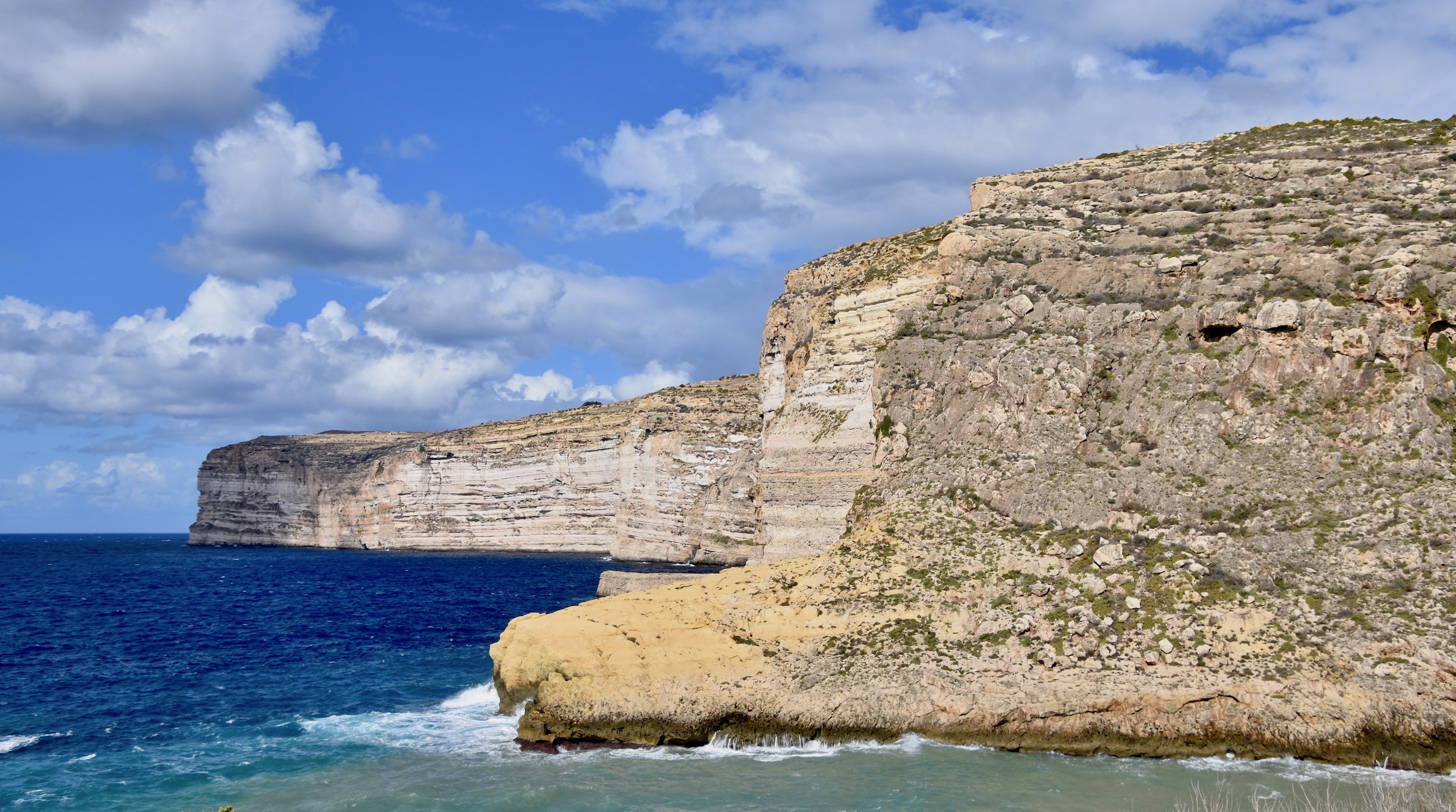
Before heading to Victoria we have two quick stops on Gozo starting with the Ta’ Cenc cliffs which are near the village of Sannat and comprise one of Malta’s most interesting landscapes. At one time Gozitans would lower themselves on ropes over the edges of these cliffs to collect the eggs of nesting sea birds, a practice also once common in Newfoundland as well. Today that is prohibited, largely because the bird population was pretty well exterminated. Instead you can walk a number of trails and paths that follow the edges of the cliff looking for more of the mysterious ‘cart’ tracks that we first encountered at Clapham Junction on Malta.
There is also the Ta’ Cenc dolmen which as far as I can find out, is the only one on Gozo. European dolmens or passage graves are megalithic burial chambers that date as far back as 5000 BC and are found in many countries on that continent. They are also found in Asia, notably Korea and Africa. I have an especial connection with dolmens as there is one called Campbell of the Rock on an ancestral farm in the glens of Antrim that is still owned by Dunlops. I have visited it twice and in 2020 put up my own dolmen on our property in St. Margaret’s Bay.
We did not visit the Ta’ Cenc dolmen on this trip, but hopefully it might be included on a future itinerary.
Xlendi
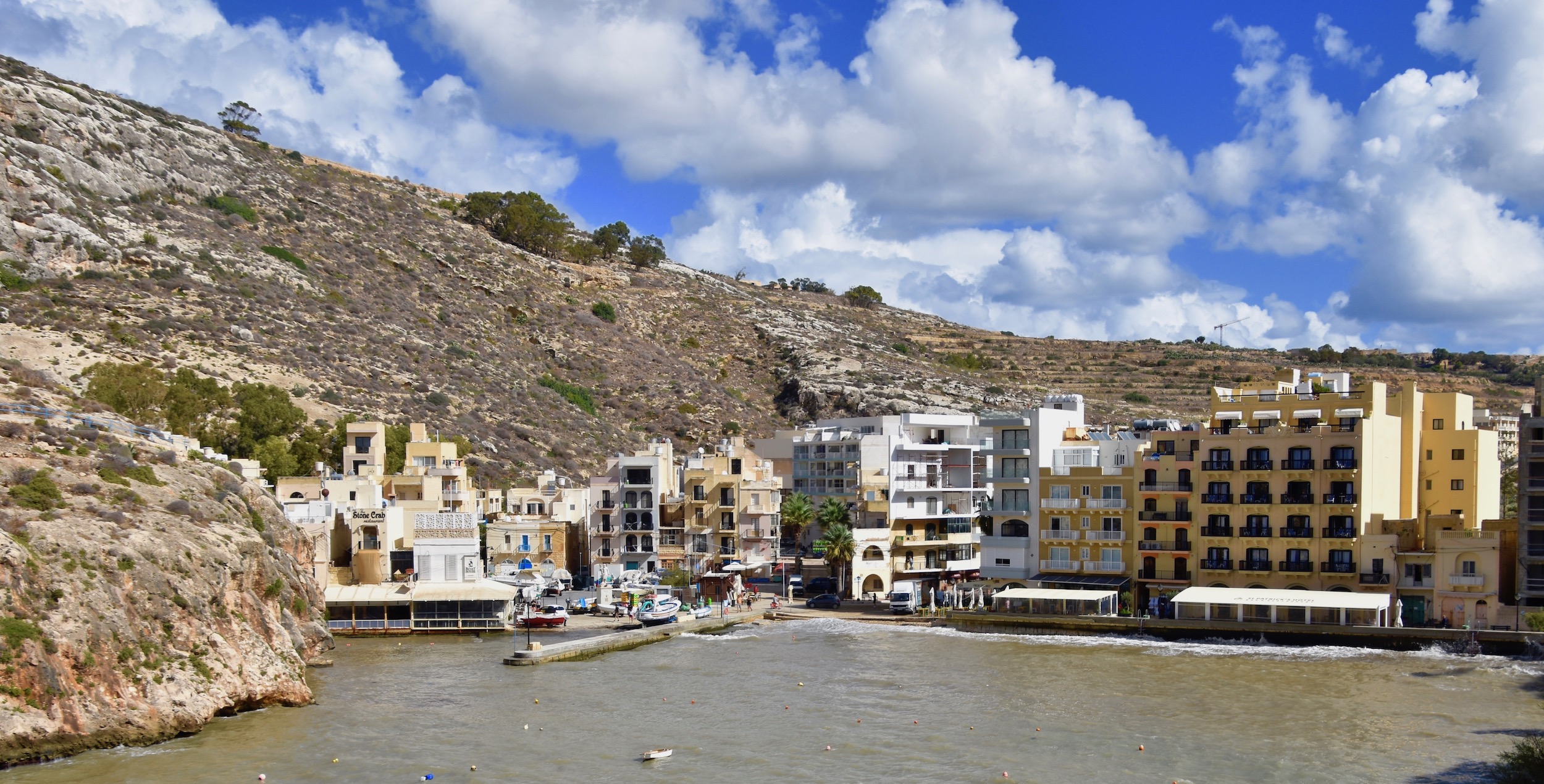
Not far from the cliffs at Ta’ Cenc is Xlendi Bay which is a very narrow inlet between the cliffs on either side. This is the resort town of Xlendi which we walked down to from the vantage point from where I took this photo.
This is the view of the bay from the Xlendi waterfront which gives a better idea of just how narrow it is. During the tourist season this is apparently a great spot for snorkelling and learning how to scuba dive, but today the water is rough and murky. Like Ta’ Cenc, there are trails leading up from Xlendi to the top of the cliffs. Overall, it struck me that this area, in the right conditions, would be perfect for a hiking/diving/snorkelling vacation. I also noticed lots of seafood restaurants along the waterfront.
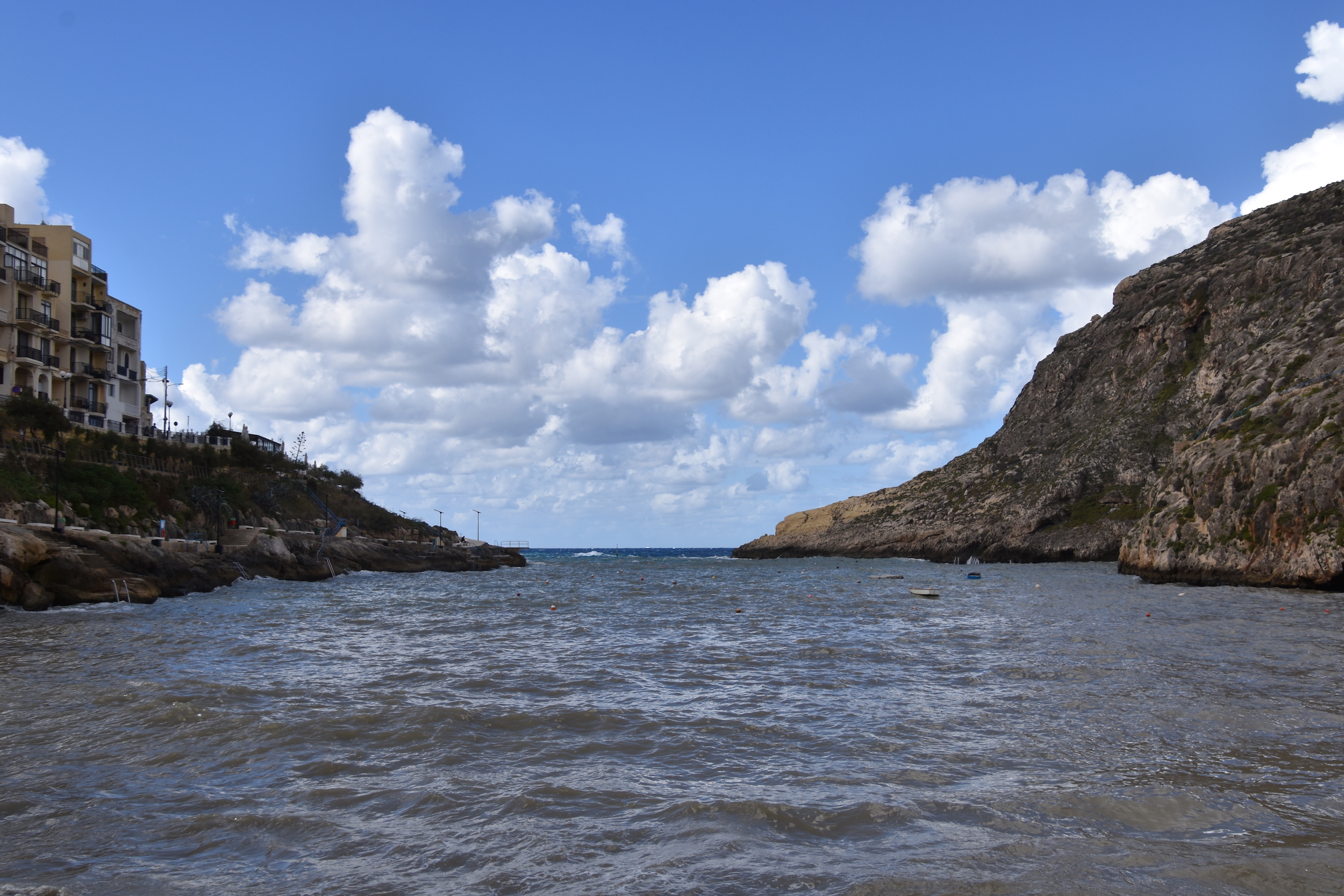
Victoria
Although it has less than 7,000 residents Victoria is by far the largest settlement in Gozo and the titular capital city of the island. Once known as Rabat until the name was changed to Victoria in 1887 to honour the British queen’s Golden Jubilee, it comprises both the residential area and the Cittadella Gozo. We’ll start our visit by walking some of the narrow streets below the Cittadella Gozo that date back to medieval times.
When I saw narrow, I mean it.
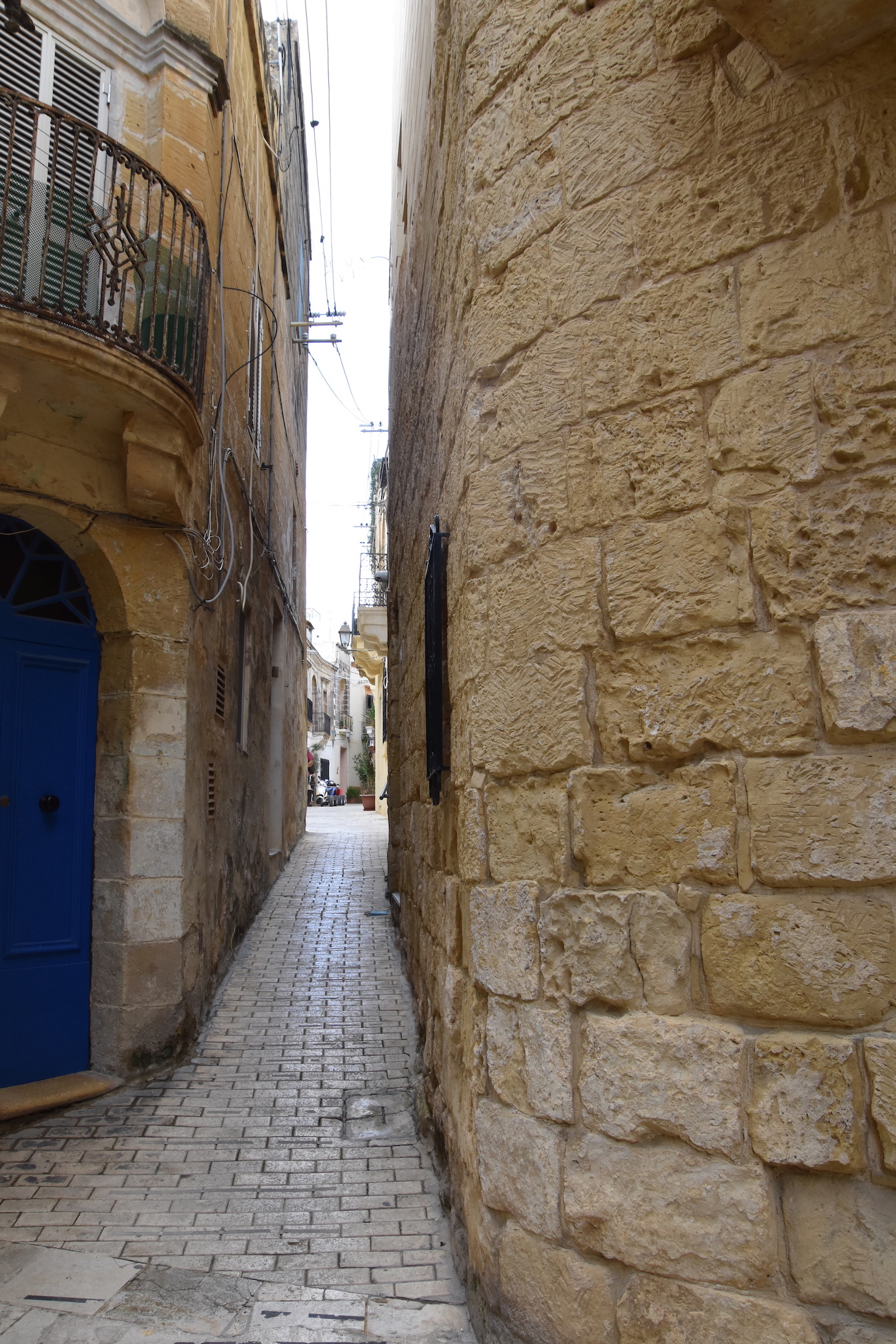
The upside to this is that much of old Victoria is free of motor vehicles and a real pleasure to stroll.
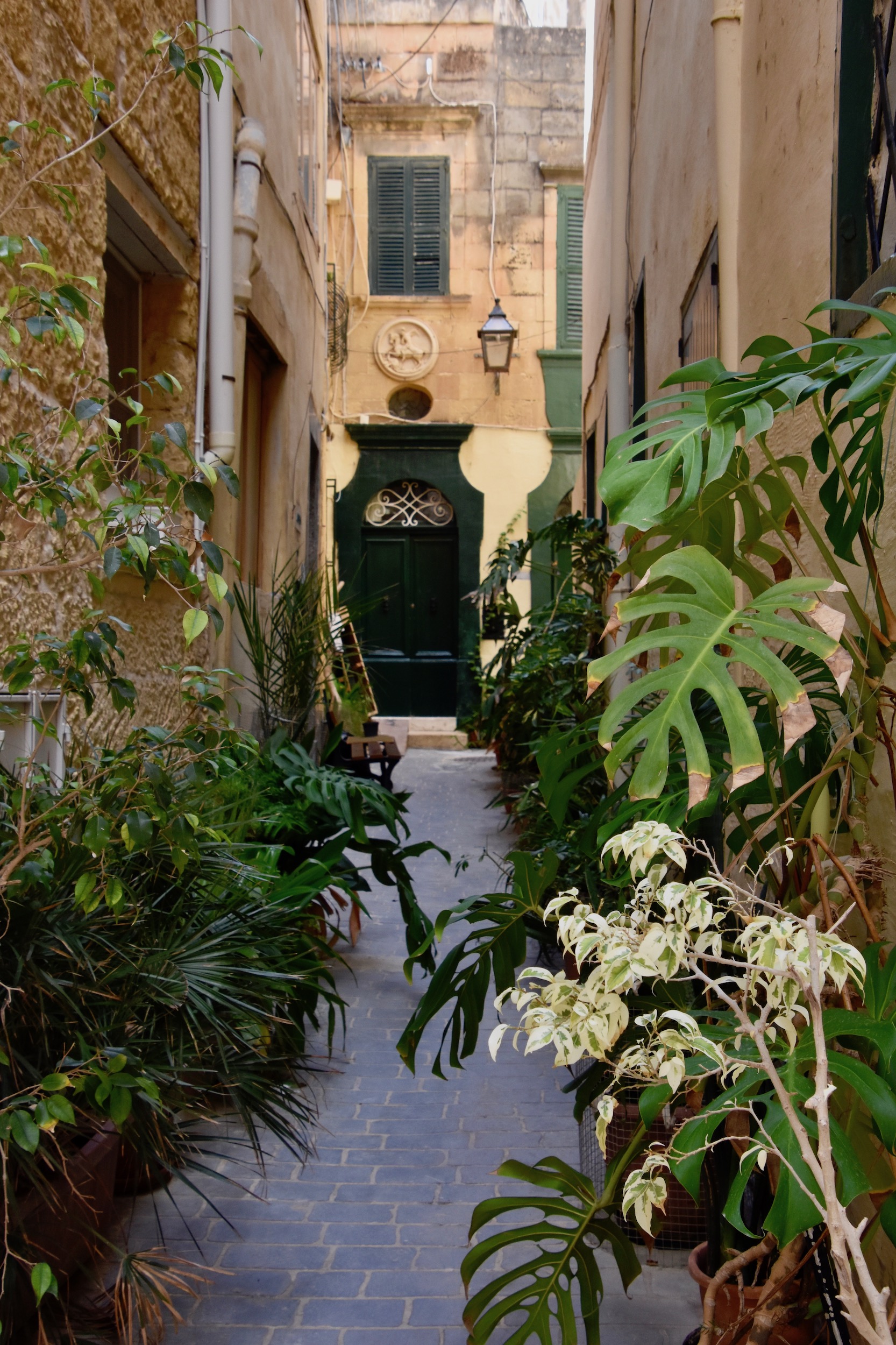
St. George or San Gorg as he is called in Maltese, is the patron saint of Victoria and that becomes readily apparent with the many symbols of the dragon slayer found on the outside of residences. In Mdina we looked for unique door knockers, in Victoria it is things like this.
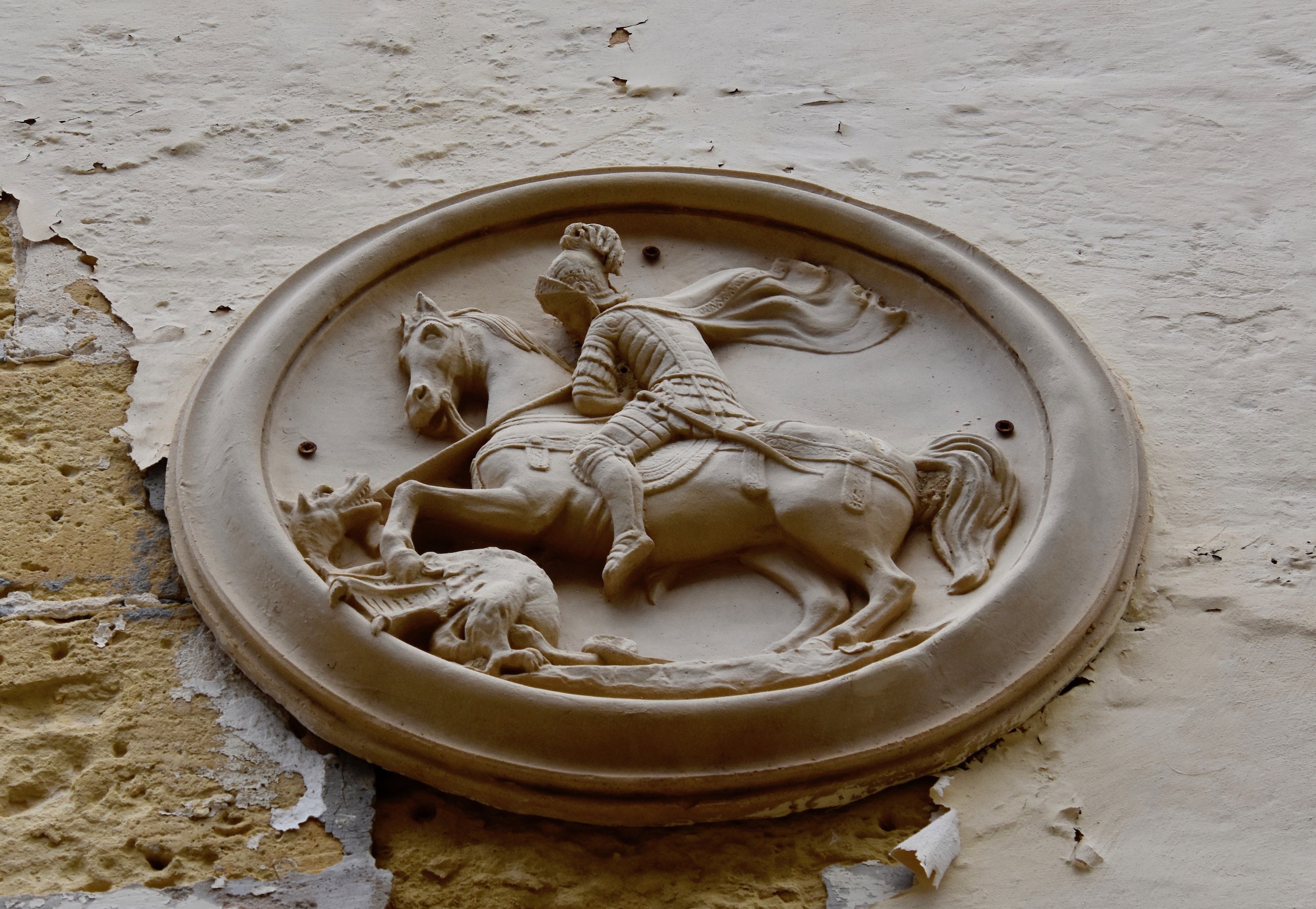
And this.
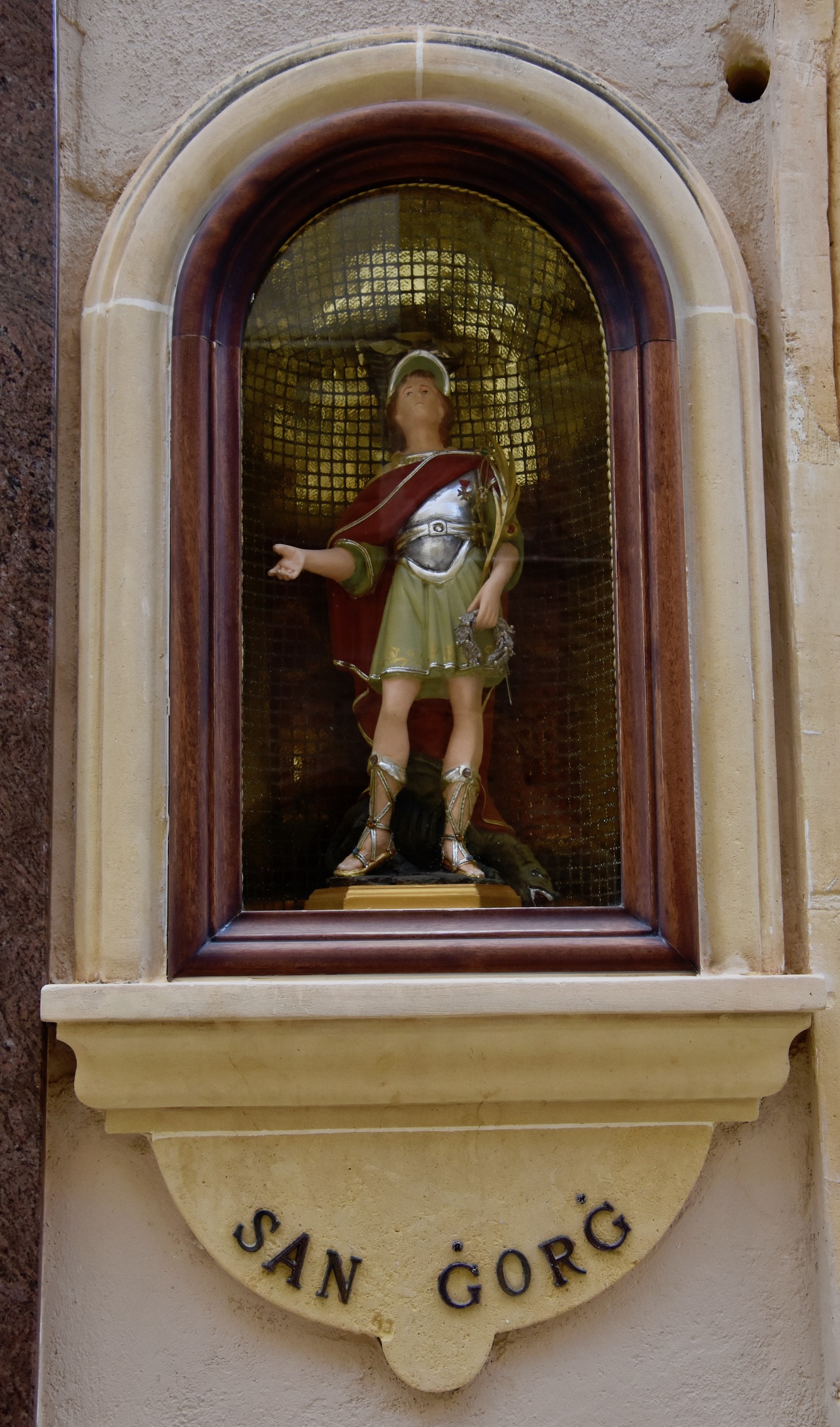
Before commencing our visit to the Cittadella Gozo we were given some time to grab lunch at one of the many good looking restaurants around Independence Square. The Gozitan pizza with Gozitan wine were both excellent choices.
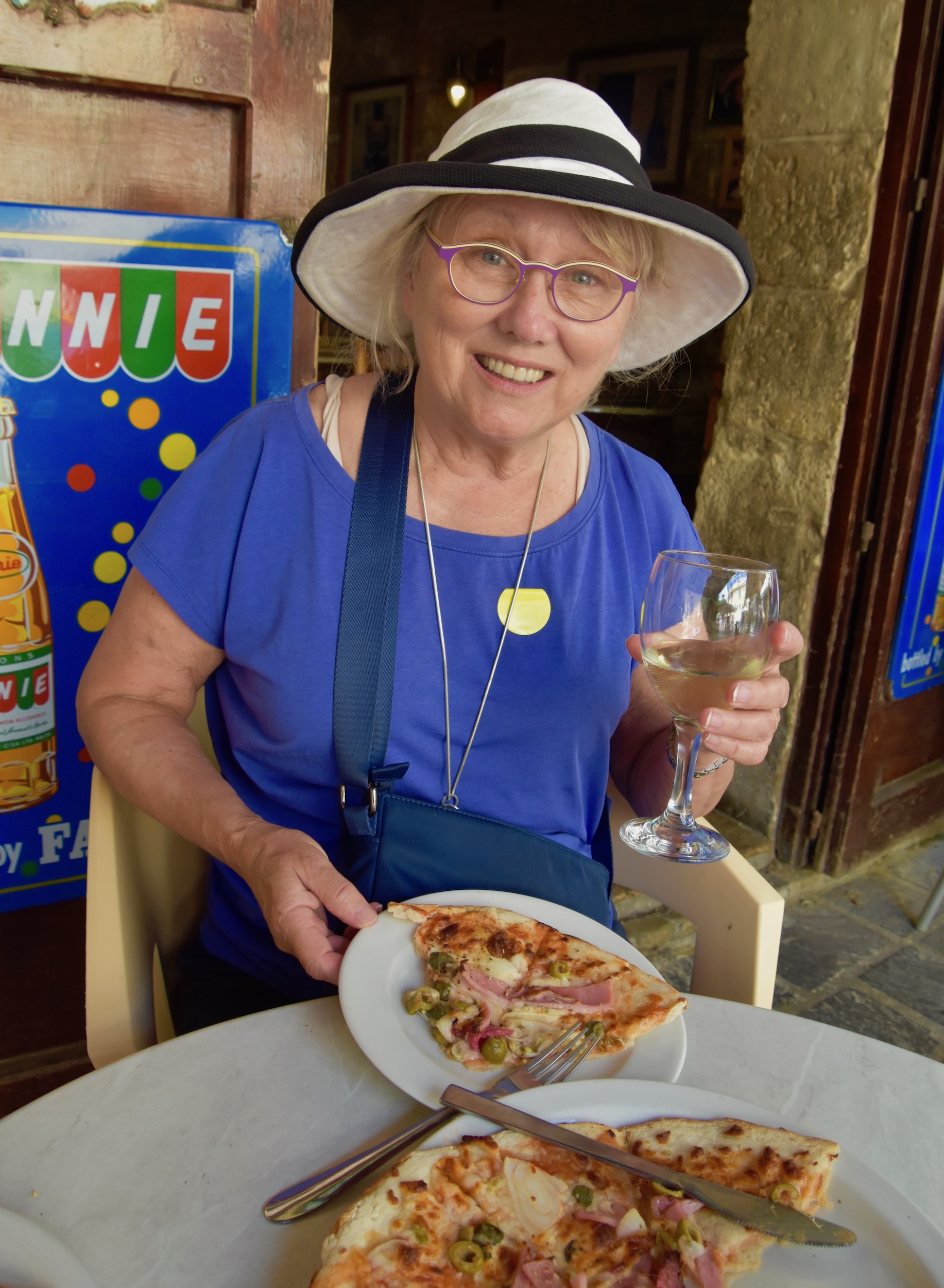
Cittadella Gozo
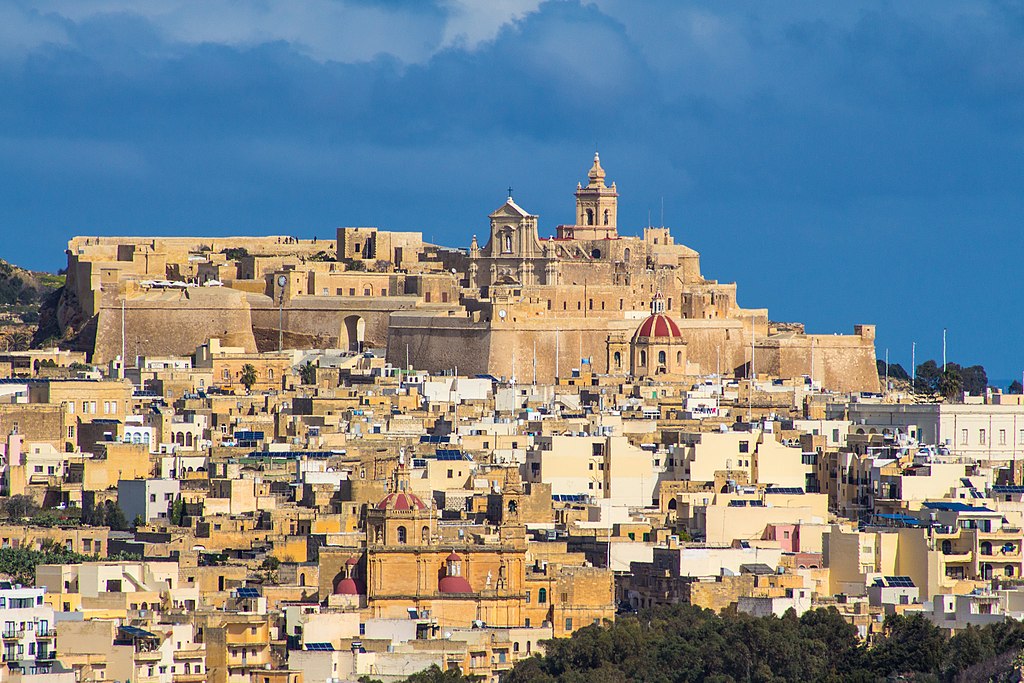
This photo of the Cittadella Gozo by Matthew Benn was taken from a higher vantage point than you would get from the city of Victoria and shows just how massive and well fortified the place appears to be, but appearances can be deceiving.
Like Mdina on Malta, the Cittadella Gozo has been occupied since the Neolithic era as evidenced by these holes at the base of the hill.
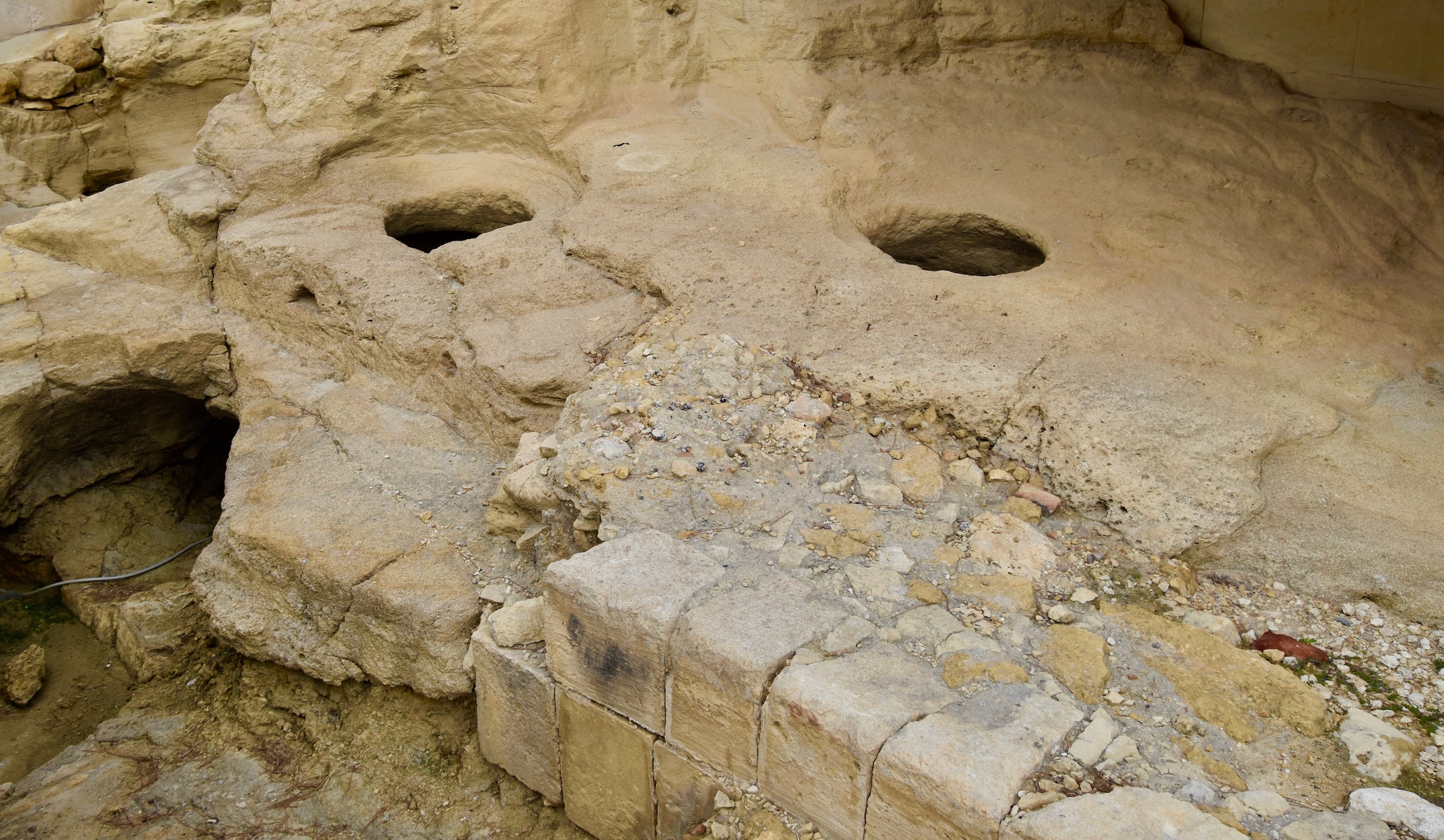
Later the site was occupied by the Punic, then Roman city of Gaulos which is what the island was called in antiquity. The Cittadella Gozo would have been the acropolis of the city and there was apparently a temple dedicated to Juno (Hera to the Greeks) on the spot where the cathedral now stands.
However, what we are seeing today dates largely from the late medieval period when the long abandoned Roman ruins were converted into a genuine fortress which the inhabitants of Gozo would retreat into when invaders arrived, which they did with great frequency. As noted in my post on the harbour cruise around Valletta, Malta became the domain of the Knights of St. John in 1530, a gift of Holy Roman Emperor Charles V. This was of no help to the residents of Gozo who in 1551 were invaded by Ottoman forces led by Turgut Reis, a famed and feared Ottoman admiral often referred to as Dragut.
After failing to take Malta, the Ottomans turned their attention to Gozo where almost every single resident was holed up in the Cittadella Gozo. As I noted earlier, the Cittadella Gozo looks imposing, but it fell to the Turks in a matter of days. In possibly the worst incident of mass slavery in history, over 6,000 Gozitans were taken as slaves and were never heard from again. A few hundred people escaped by lowering themselves down the outer walls which as we shall see when we get to them, was a pretty daring enterprise. In a matter of days the island of Gozo lost over 95% of its population.
This event has not been forgotten in Gozo. This is the 1551 monument at the base of the Cittadella Gozo which commemorates that horrific event. Dragut returned to Malta for the Great Siege of 1565 and perhaps fittingly, was killed there. There is a statue of him on the Istanbul waterfront below Topkapi Palace that I shall be seeing when we head to Turkey with Adventures Abroad after the Malta tour.
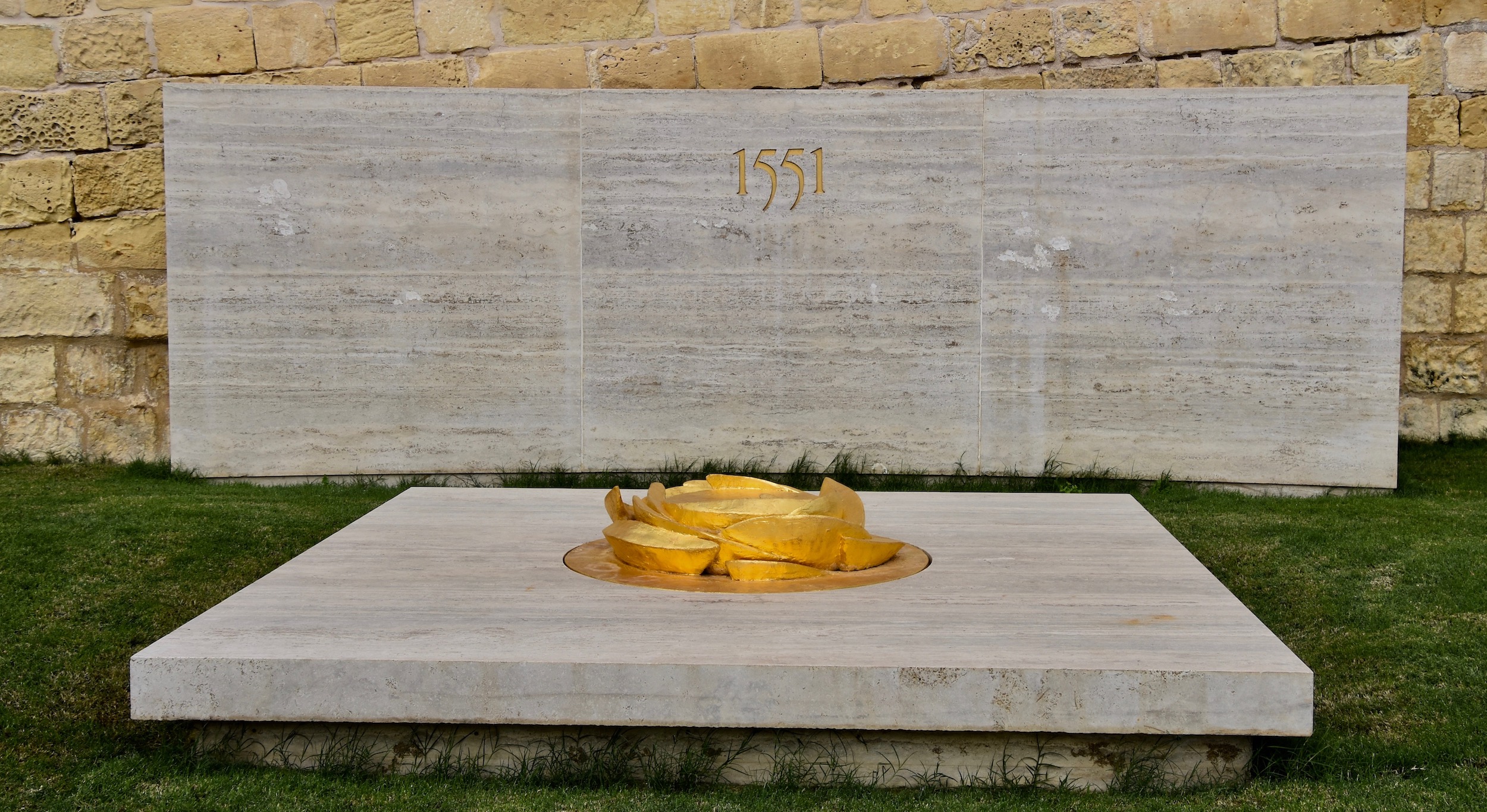
OK, time to enter the Cittadella Gozo which you do by climbing this ramp. That’s our local guide Chantelle Shaw on the left leading the way.
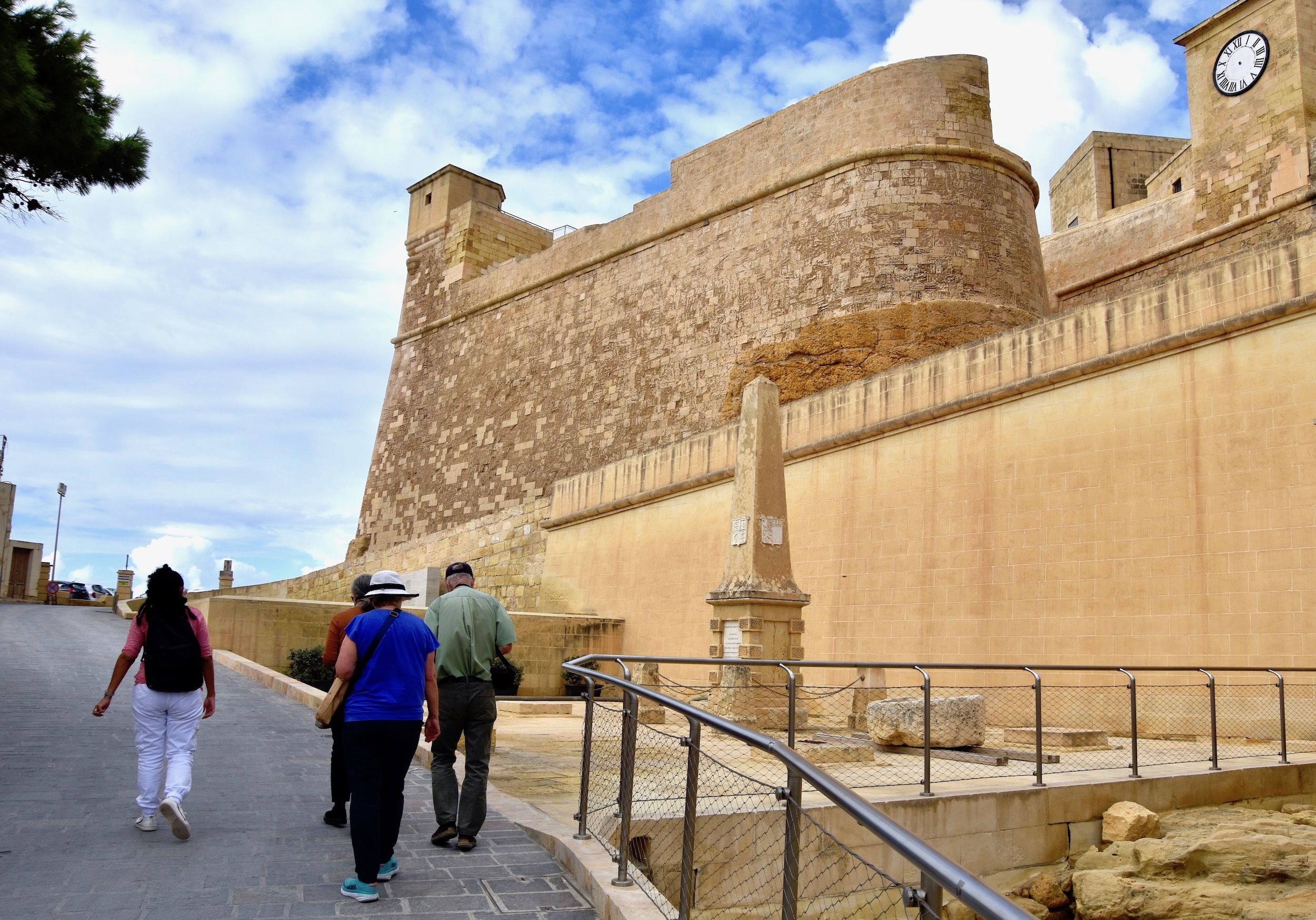
Just at the entrance is this map of the interior with no less than 27 points of interest including a number of small museums of which we visited about half during our time here.
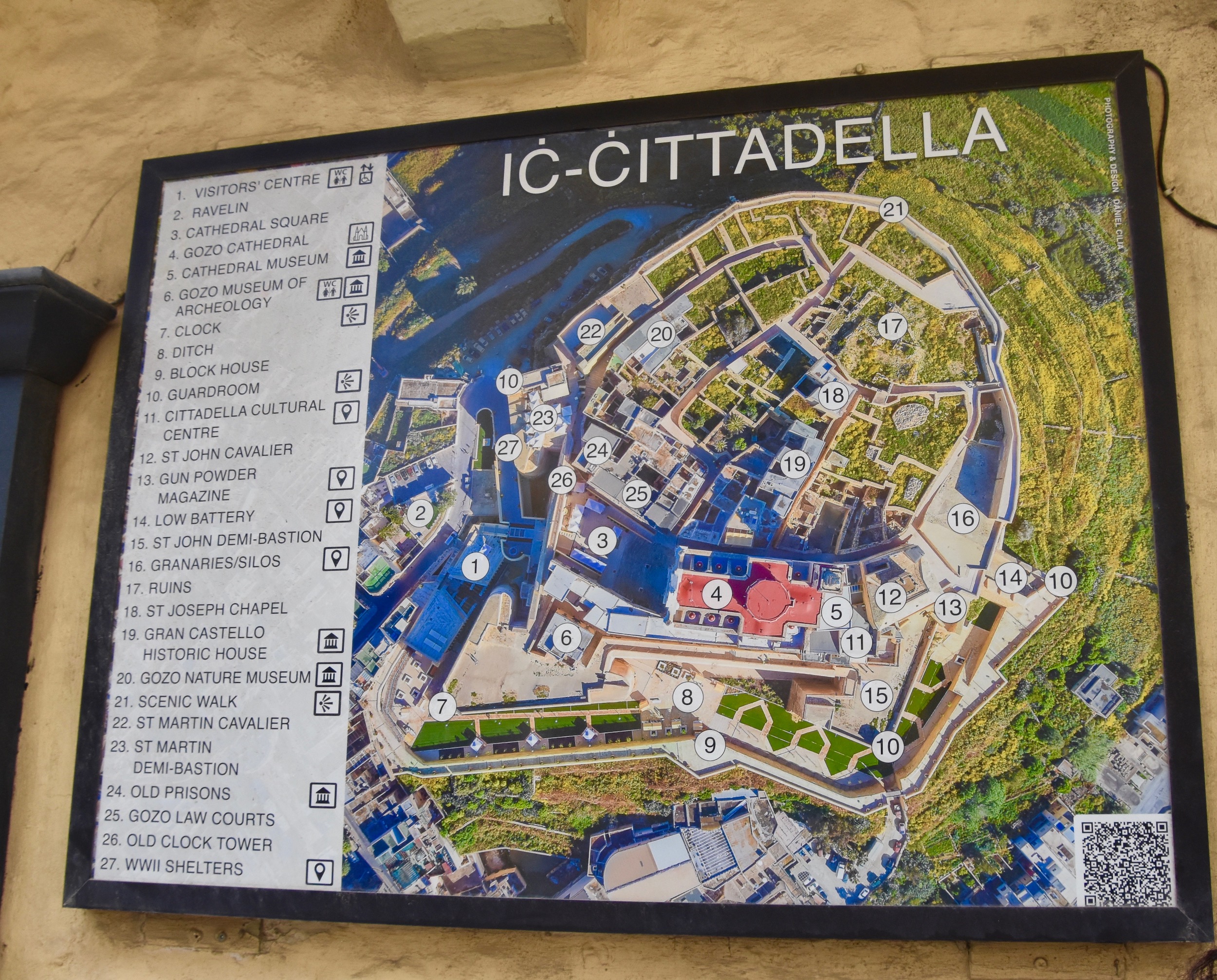
Unlike Mdina citadel which still has about 300 residents there is only one family still living in the Cittadella Gozo and Chantelle points out the door where they live. Note the bamboo curtain that can be lowered in place of keeping the doors closed during the heat of summer.
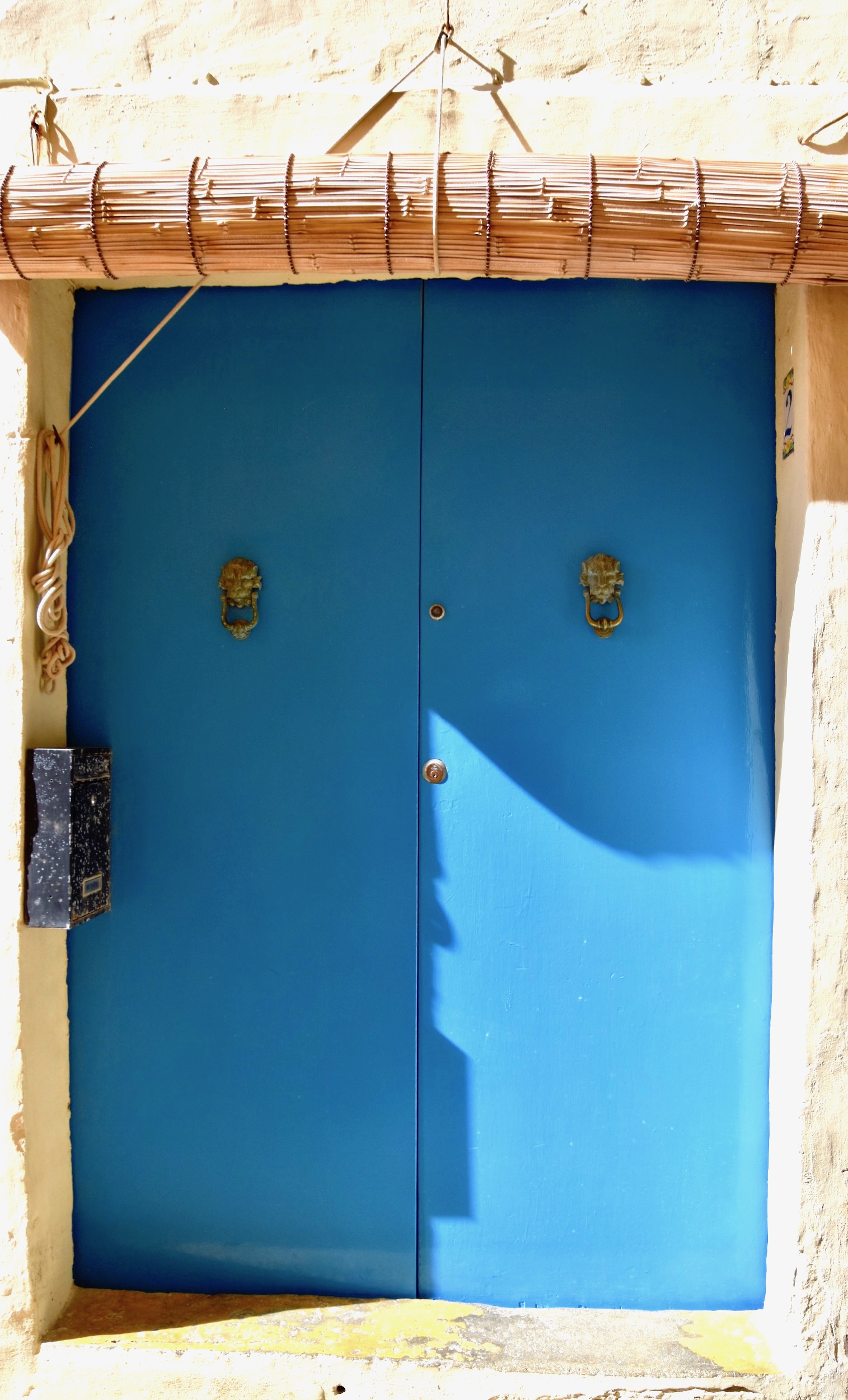
The most imposing building inside Cittadella Gozo is, not surprisingly, the Cathedral of the Assumption of Mary which sits on the site of the Roman temple and numerous earlier churches. This one dates from 1711 and was built after the earthquake of 1693 destroyed the medieval structure. The statue on the right commemorates the visit of Pope John Paul II who in 1990 became the first pope to ever officially visit Gozo.
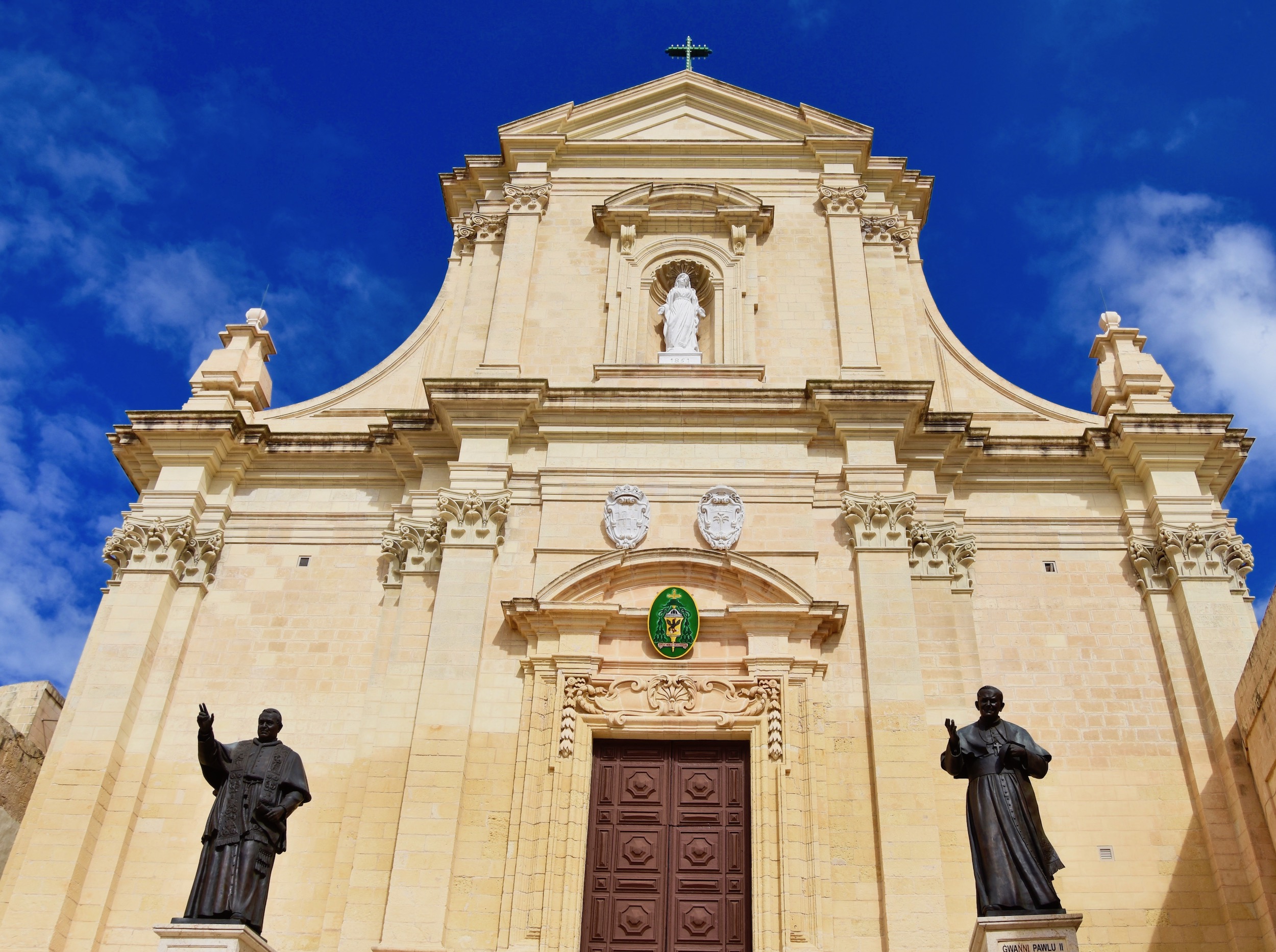
The Cittadella Gozo has much steeper streets than Mdina and from the cathedral square every way is up.
This is Triq Bernardo DeOpuo which is one of the major streets, lanes actually, of Cittadella Gozo and it commemorates a tragic and apparently true story. Bernardo DeOpuo was a resident of the citadel when the Ottomans stormed the place in 1551. Knowing that his wife and daughters would become slaves if captured, he killed them and then fought the Turks until he was cut down on this street by their scimitars. Not sure if that makes him a hero or a murderer, but the Gozitans definitely favour the former view.
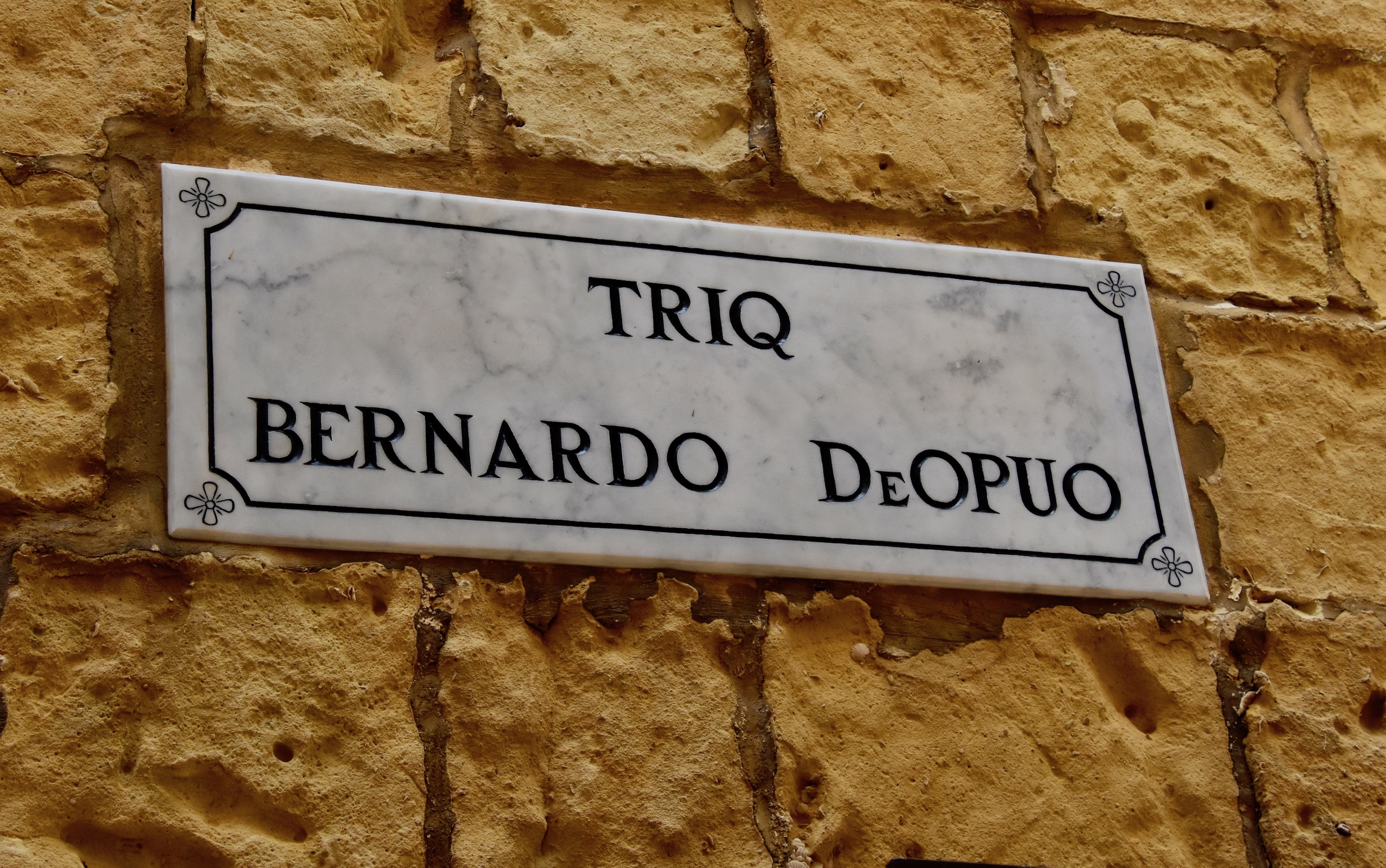
If you look at the map above, you can see that there is a fair amount of green space and we came across a number of gardens and small orchards where the pomegranates were literally falling off the trees.
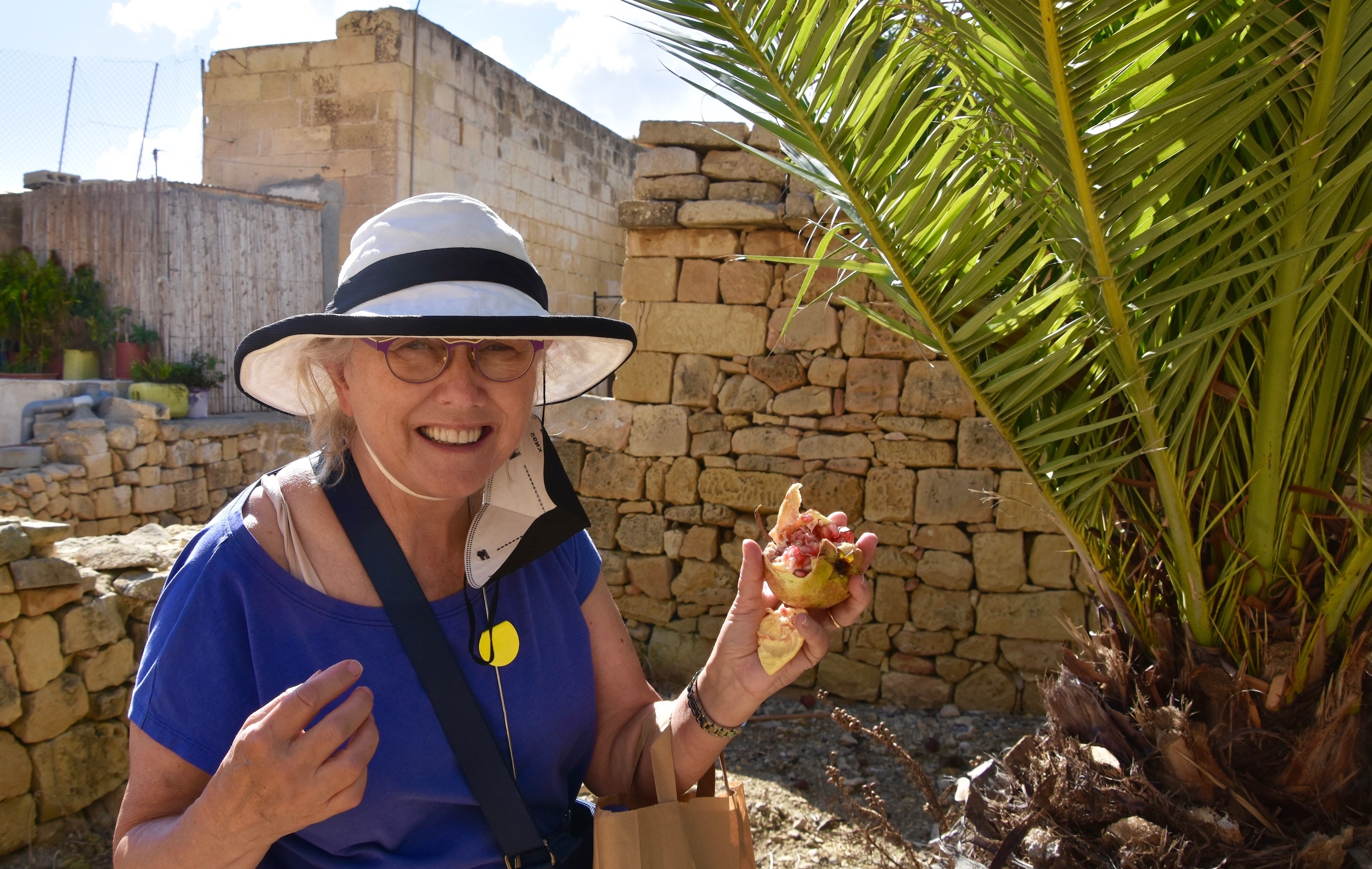
This is a grist mill in one of the museums we explored. It would probably have been powered by a donkey or small horse, but could be pushed by hand if necessary.
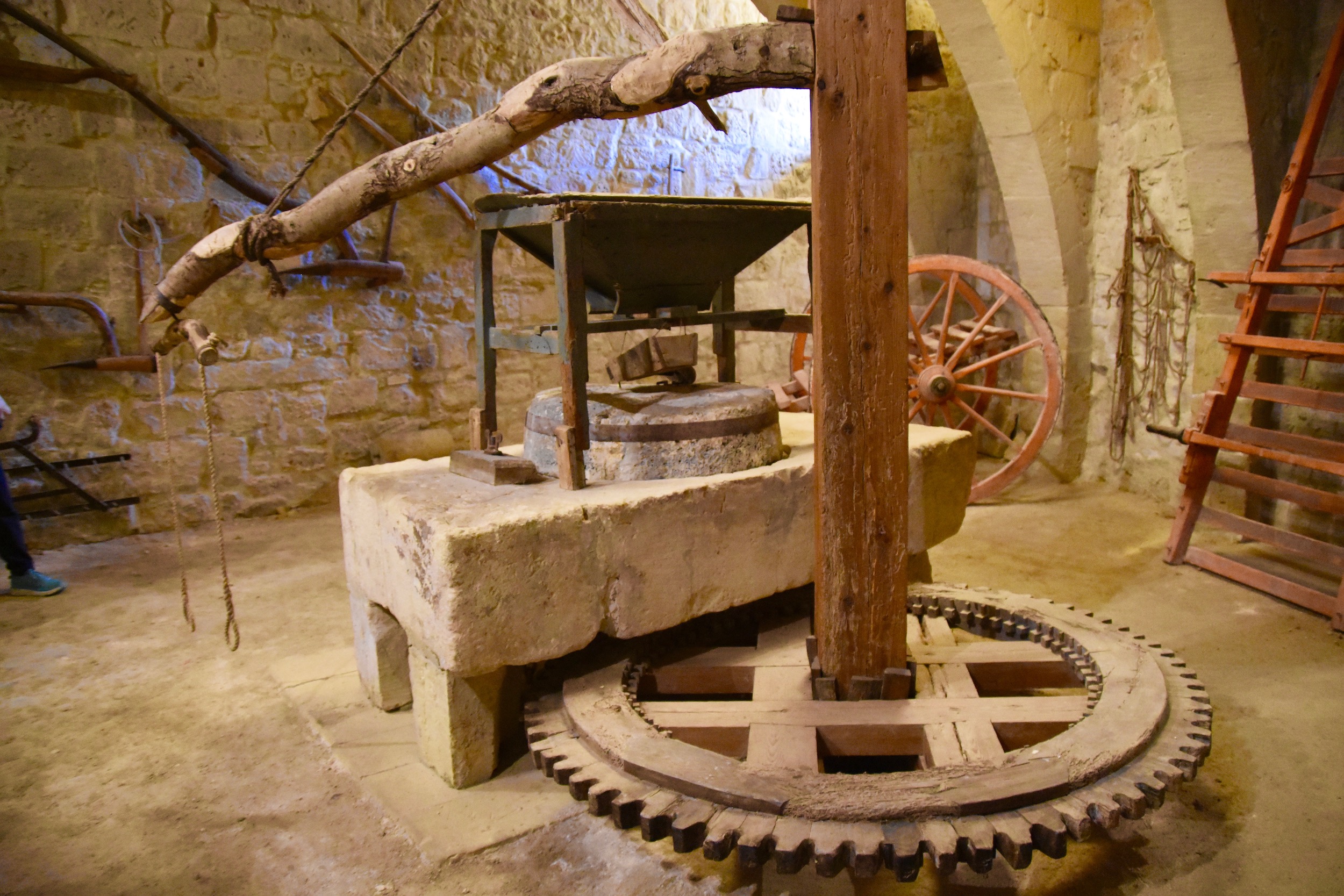
At the highest point in Cittadella Gozo you come to the walls that face away from Victoria and outward to the Gozitan countryside. This is the view looking across to the top of the cathedral.
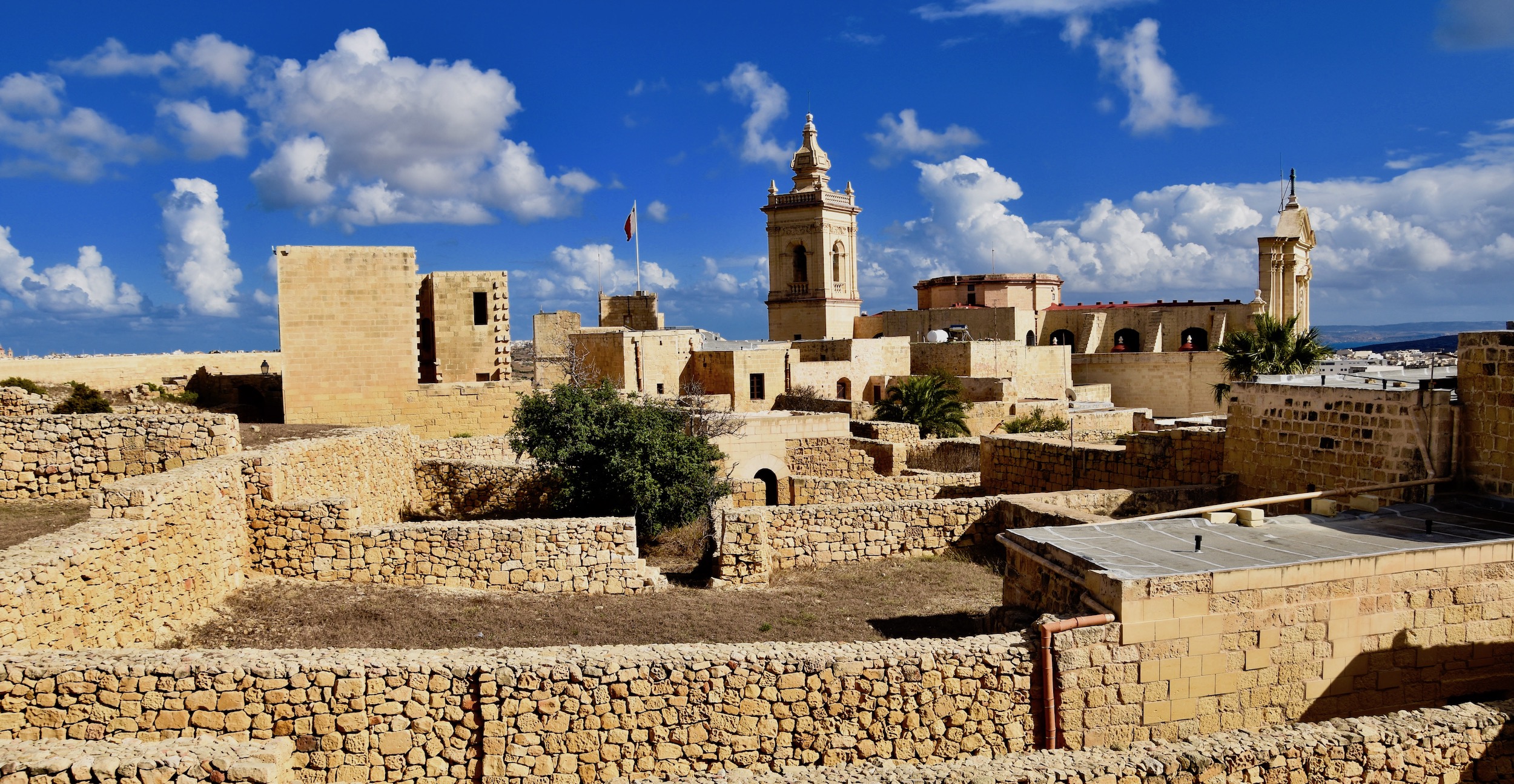
And this is the view looking out over Gozo in what the map describes in complete understatement as the Scenic Walk.

Remember I mentioned that a number of people escaped the 1551 invasion by lowering themselves over these walls? Just look at how far down it is to solid ground. I do not believe I have ever been on steeper ramparts than these at the Cittadella Gozo and I cannot imagine going over them at night on a rope that may or may not be long enough to get you down.

Here are more views from what I think is the most scenic viewpoint in the entire country.
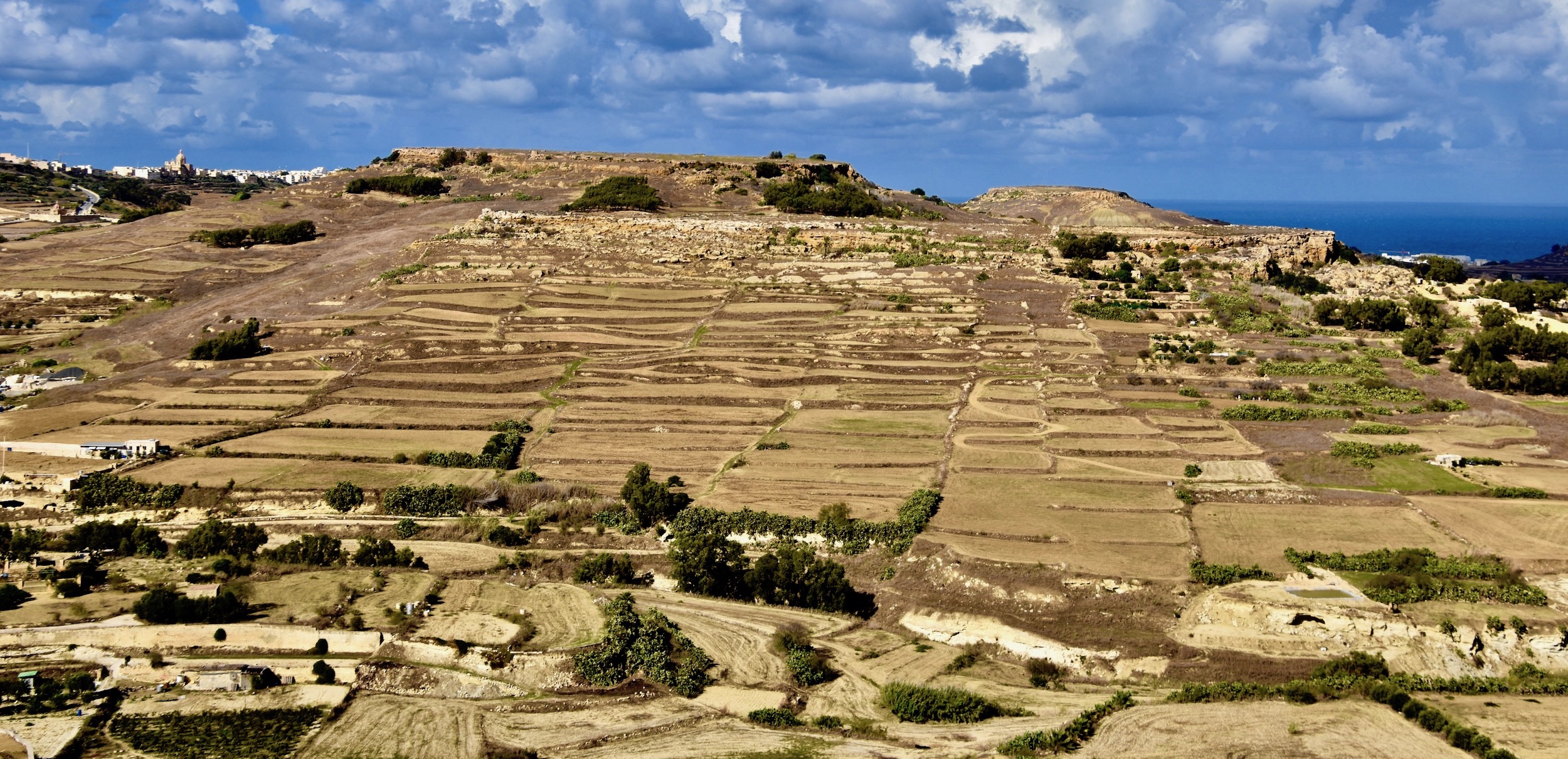
This last one might be my favourite photo from the entire trip. There are no superlatives that can adequately describe the views from these walls so I won’t try. This is something you have to experience for yourself.
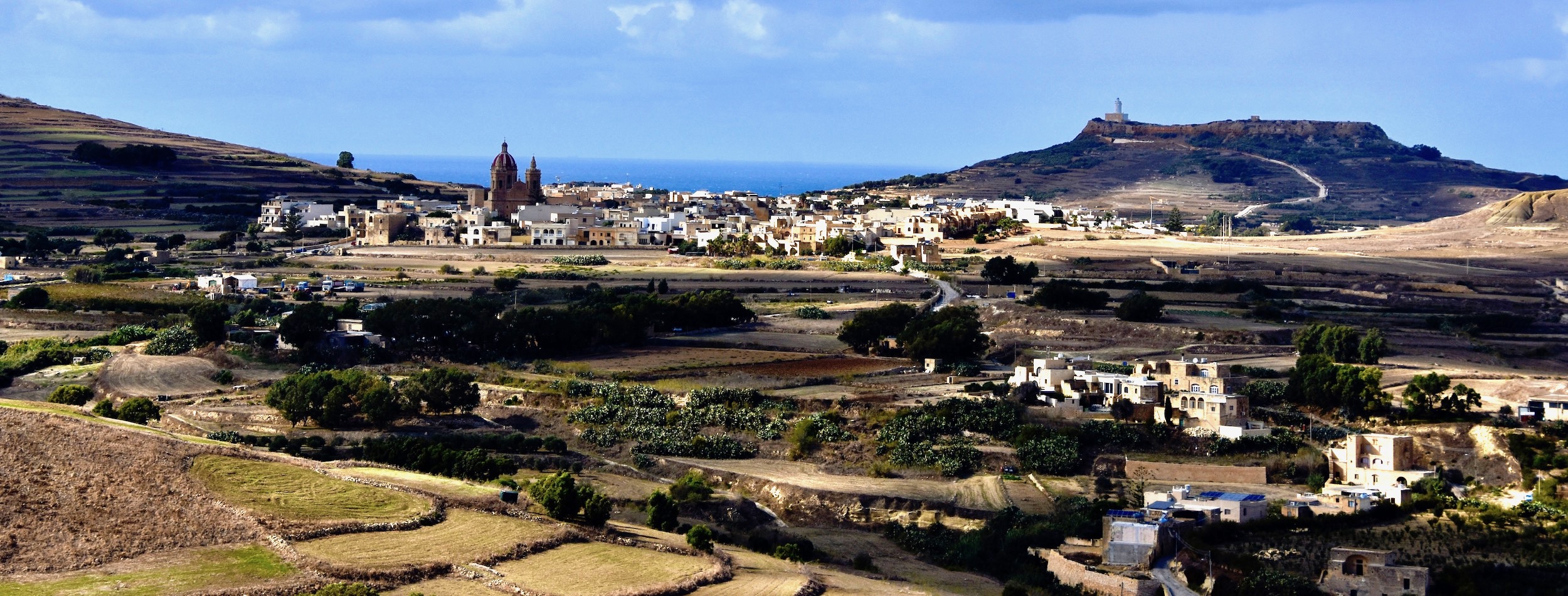
And of course you’ll want that shot of yourselves atop the walls.
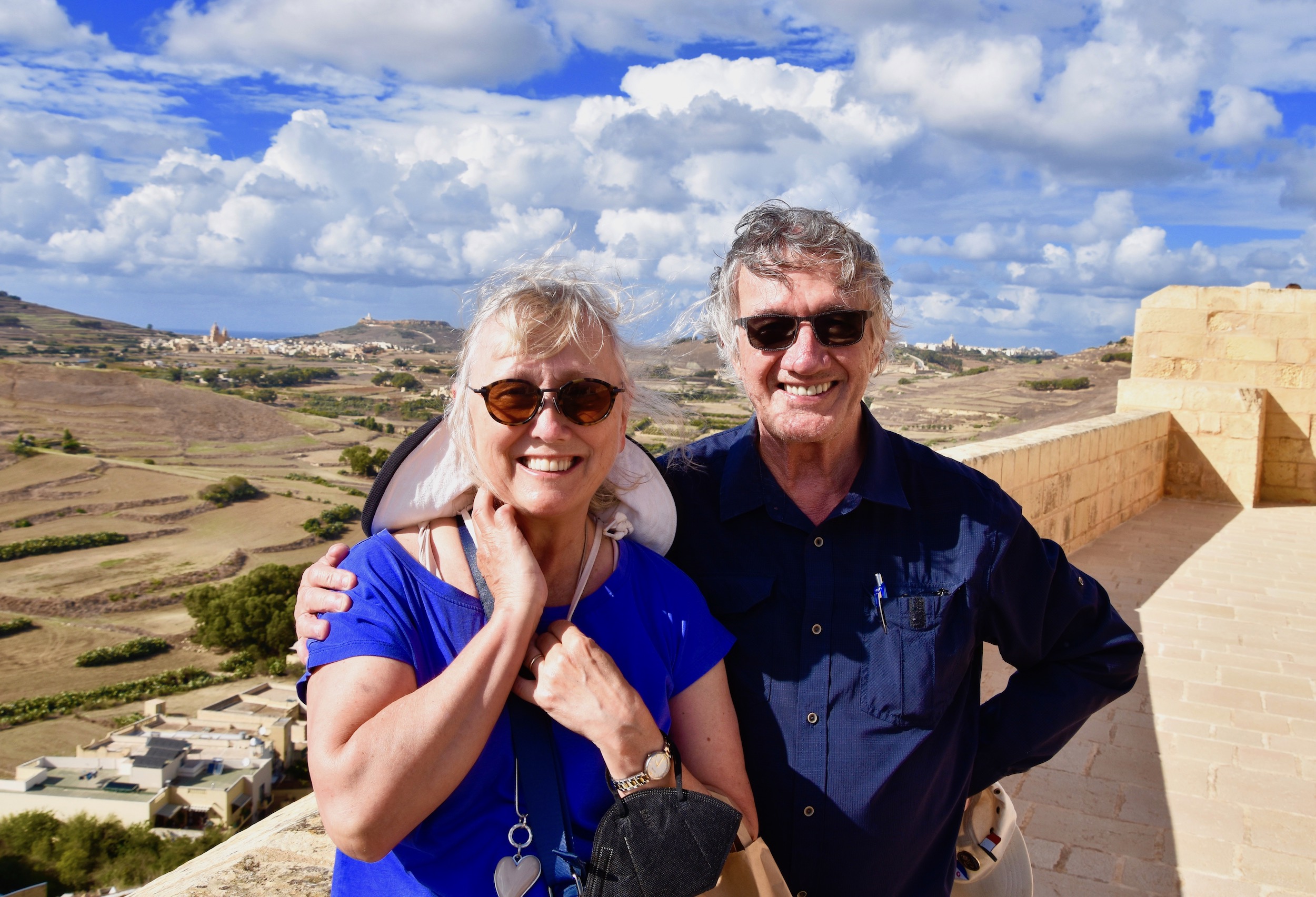
As you make your way back down there is an excellent view of the cathedral from the outer wall.
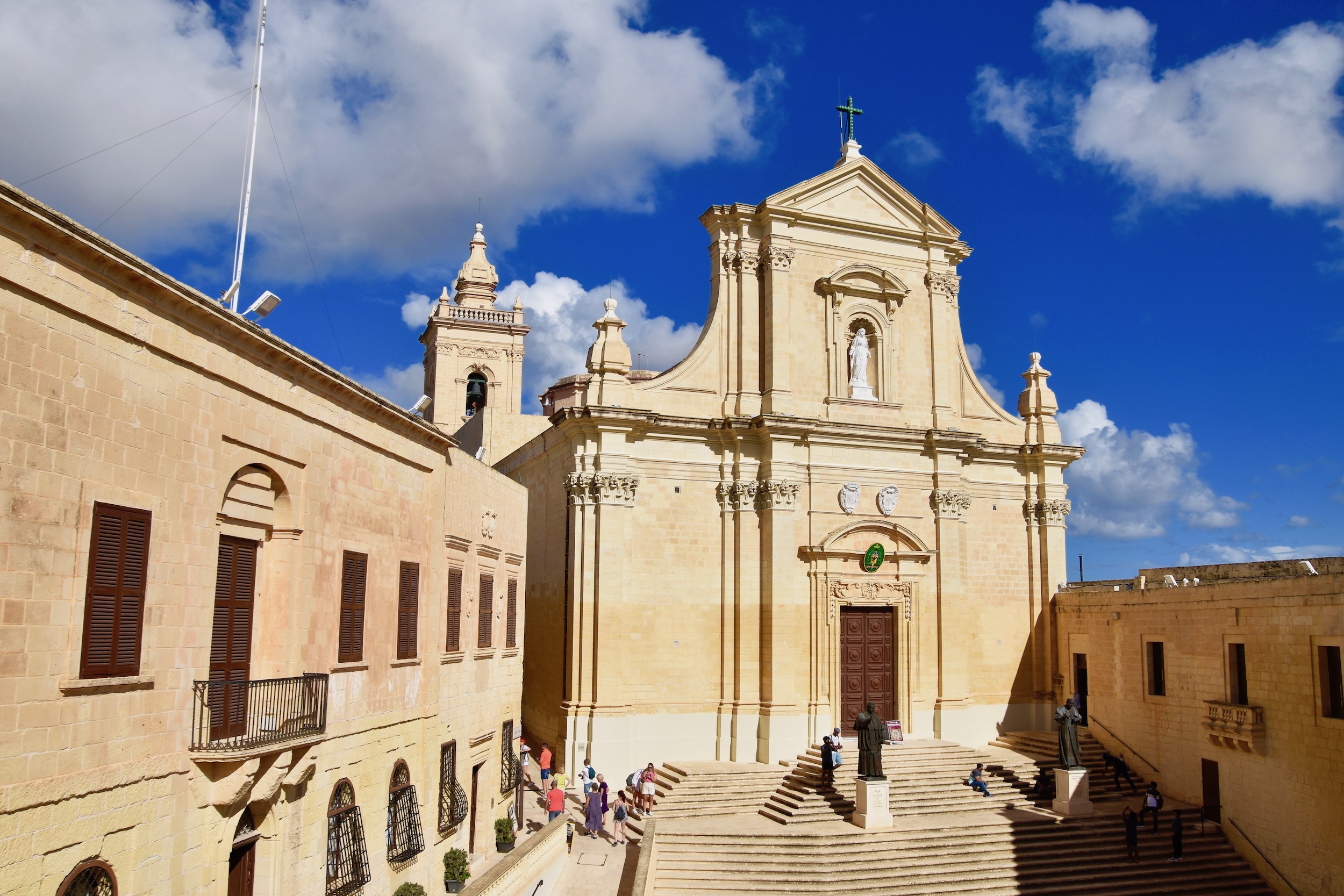
Sadly, that concludes our visit to Gozo and Malta. I hope you have enjoyed these posts and will be inspired to visit this amazing country with Adventures Abroad. I would strongly recommend combining it with either Algeria and Tunisia before or Italy afterward, both options that are offered by AA.
For our part, Alison and I are headed to Turkey to continue our travels with Adventures Abroad which is only logical given the history between the Ottomans and the Maltese. I’ll keep you posted from there. Until then, addio.

